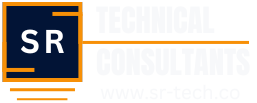Why 2025 Demands a “Corporate Trust Mandate.”
By Scott Ringkamp, PhD | SR Technical Consultants

For decades, corporate reputation was viewed as a “soft” asset—something handled by PR teams to keep the brand shiny. But as we close out 2025, the data tells a starkly different story. Trust has hardened into a financial currency, and for many organizations, the account is overdrawn.
Our latest release, “The Corporate Trust Mandate Report: Navigating the New Social License to Operate,” analyzes data from the Edelman Trust Barometer, the Global RepTrak 100, and IBM’s security insights to map a new reality: trust is no longer just about brand sentiment; it is about operational survival.
Here are the critical takeaways from the report that every Board of Directors and C-Suite leader needs to understand today.
1. The Financialization of Reputation
The days of guessing the value of a good name are over. We can now quantify exactly what trust is worth.
- Revenue Impact: Corporate reputation now directly contributes between 3% and 7.5% of annual revenues.
- Market Value: Executives estimate that reputation accounts for up to 63% of a company’s total market value. For S&P 500 companies, that translates to approximately $11.9 trillion in value.
The Takeaway: Reputation risk is now equity risk. A degradation in trust doesn’t just hurt feelings; it compresses stock multiples and increases the cost of capital.
2. The Dominance of “Grievance”
The global mood in 2025 is defined by “grievance”—a belief that the system is rigged. With 61% of the global population feeling this sense of grievance, business has become the last trusted institution.
- The Expectation: Stakeholders don’t want neutrality. They are demanding that corporations fill the void left by failing public institutions to solve systemic problems like inequality and information integrity.
- The Danger: If you fail to meet these expectations, you face “hostile activism,” where consumers view attacking a brand as a legitimate tool for change.
3. The Threat Landscape: Shadow AI and Asymmetry
The threats to your reputation are more asymmetric than ever. Small actors can now inflict massive damage using low-cost digital tools.
- Shadow AI: Employees using unauthorized AI tools (like public ChatGPT models) are bypassing security perimeters. Breaches involving “Shadow AI” cost 16% more than standard breaches.
- Zero-Click Damage: With the rise of AI “Answer Engines,” consumers may never visit your website. If an AI “hallucinates” a controversy about your firm, the damage is done instantly, often without you knowing.
- Deepfakes: Synthetic media can now impersonate CEOs convincingly enough to tank stock prices before the truth is verified.
4. The “Optimism Dividend”
Despite the grim landscape, there is a clear path forward. The data shows that “With trust, optimism eclipses grievance”.
- When a corporation delivers competence and fairness, it unlocks an “Optimism Dividend”.
- This creates a loyal customer base that views the brand not just as a vendor, but as an ally in a hostile world.
What You Must Do Now
The era of passive reputation monitoring is dead. You cannot just count media clips; you need Reputation Intelligence that predicts threats before they go viral.
SR Technical Consultants advises a shift to a “Glass Box” strategy: radical transparency where you “pull back the curtain” on decision-making. In an economy defined by chaos, the most valuable commodity you can sell is certainty.
Read the full “Corporate Trust Mandate Report” to see the complete data breakdown and our 7-step framework for building a resilient trust architecture.

